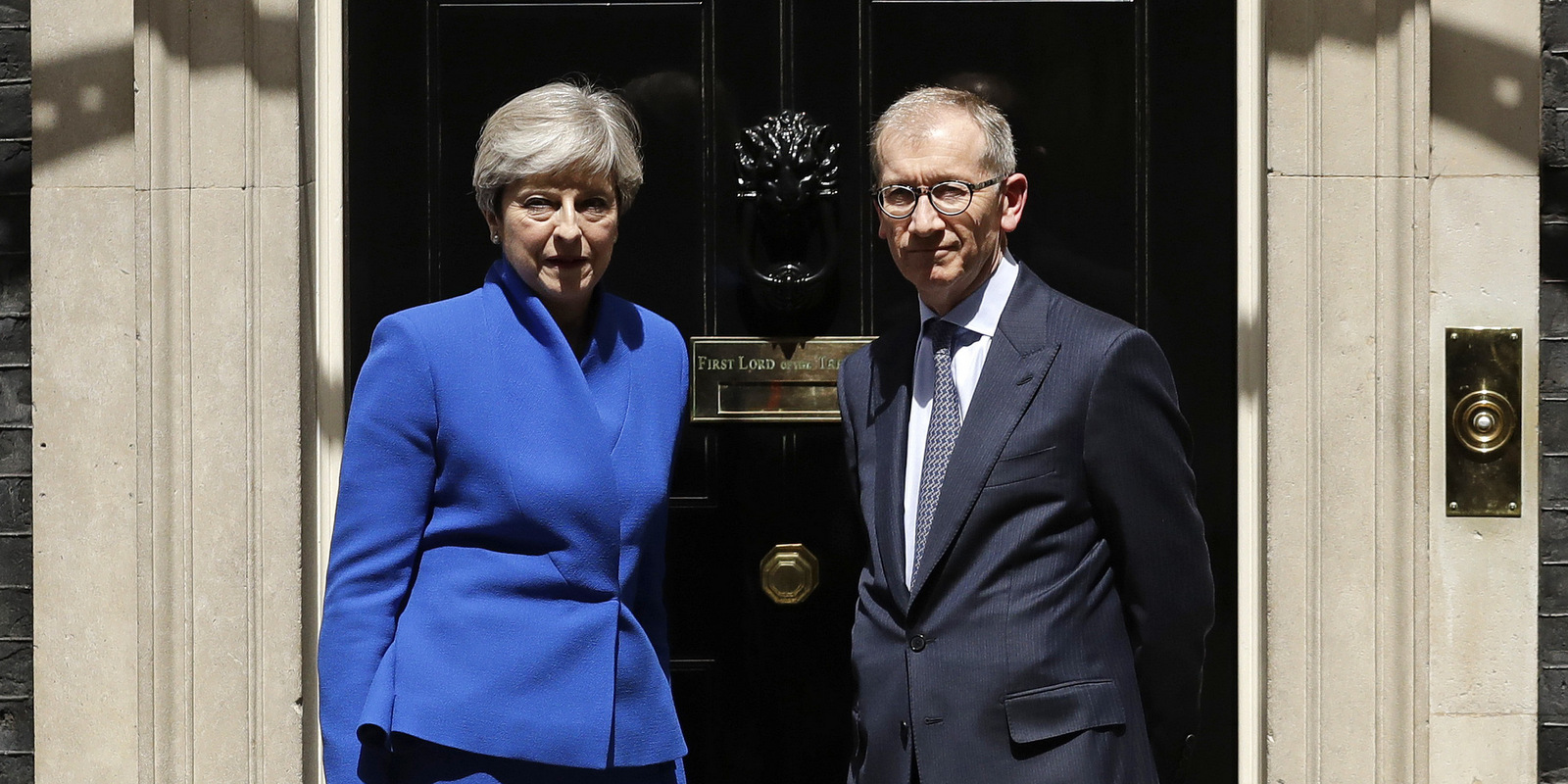LONDON — Once described as U.K. Prime Minister Theresa May’s “secret weapon,” her husband Philip May may have been behind May’s decision to use weapons against Syria last Saturday as part of a joint U.S., U.K. and French effort to target the Syrian government over its alleged use of chemical weapons. The evidence for that chemical weapons attack was decidedly flimsy – largely based on video and testimony of a group funded by the U.S. and U.K. governments that supports efforts to overthrow the Syrian government – and May was initially unwilling to commit the U.K. to participate in last week’s strikes until more evidence emerged.
Last Monday, after U.S. President Donald Trump had warned that he would make a decision on striking Syria within 48 hours, May reportedly told Trump that she would not join the strikes unless more evidence of Syria’s culpability emerged. By Wednesday, however, her tune had changed, as May told reporters that day that “all the indications are that the Syrian regime was responsible, and we’ll be working with our closest allies to consider how we can ensure that those responsible are held to account.” Yet no new evidence showing Syria’s guilt in the attacks emerged between Monday and Wednesday, nor has such evidence been released by the British, U.S. or French governments.
Indeed, declassified intelligence reports show that these governments based their assertion that Syria’s government had conducted a chemical weapons attack on “videos and images” that were “open source” and published on social media; testimony of U.S. and U.K.-funded, pro-rebel organizations in Syria; and the circumstantial fact that Syrian jets were active in the area during the day the alleged attack took place. Thus, May’s decision to strike was not based on the emergence of new evidence proving Syria’s role. It appears instead that something or someone else may have persuaded her to join the effort for other reasons.
Philip May’s connections and incentives
Since then, May’s husband has been fingered as the likely suspect that led her to approve the U.K.’s participation in the strikes without seeking parliamentary approval. Philip May has been noted time and again as a close political adviser to his wife, with the prime minister referring to him as her “rock” and confidant. However, particularly in matters of war, Mr. May has a glaring conflict of interest through his work at one of the world’s largest and most powerful financial institutions, the Capital Group, which controls a stunning $1.4 trillion in assets. May has worked at the firm since 2005 and handles client relations for the group.
The Capital Group has a significant stake in top weapons manufacturers in the U.S. and U.K. For instance, it is the largest shareholder in British arms manufacturer BAE Systems, a company with numerous ties to the U.K. political establishment, particularly to Theresa May’s party, the Conservative (or “Tory”) Party. The Capital Group is also the second-largest shareholder of Lockheed Martin, the U.S. arms firm with powerful connections to the U.S. political establishment.
During last Saturday’s strikes, more than $9 million of BAE-manufactured missiles were fired while the 19 Lockheed-manufactured missiles used in the attack cost upwards of $33 million. After the Syria strikes, the stocks of both companies surged, rising nearly $10 a share.
The strike may also have helped both companies sell more weapons. For instance, Lockheed Martin enjoyed significant PR after the strike, owing to the debut of its new Joint Air-to-Surface Standoff Missiles, or JASSMs, which were produced as part of a U.S. taxpayer-funded $4.6 billion defense program.
Military.com noted that, even before the strikes, Lockheed Martin executives were preparing for a jump in JASSM orders. However, many of the glowing reviews published about the JASSM failed to mention that the missile – development of which began in 1995 – had long been plagued with problems, including decades of poor performance and reliability issues. Yet, revisions based on the JASSM’s post-strike reviews ensure that the missile’s troubled history will soon give way to lucrative new orders for the top U.S. weapons manufacturer.
Given the jump in profits for BAE and Lockheed – and thus the Capital Group – it is highly likely that Philip May is, at the very least, more than pleased with the outcome of the U.K.’s involvement in the Syria strikes and his wife’s change of heart in supporting the attack.
Top Photo | British Prime Minister Theresa May and her husband Philip stand on the doorstep of 10 Downing street, London, after addressing the press, June 9, 2017 following an audience with Britain’s Queen Elizabeth II at Buckingham Palace. (AP/Matt Dunham)
Whitney Webb is a staff writer for MintPress News and a contributor to Ben Swann’s Truth in Media. Her work has appeared on Global Research, the Ron Paul Institute and 21st Century Wire, among others. She has also made radio and TV appearances on RT and Sputnik. She currently lives with her family in southern Chile.


